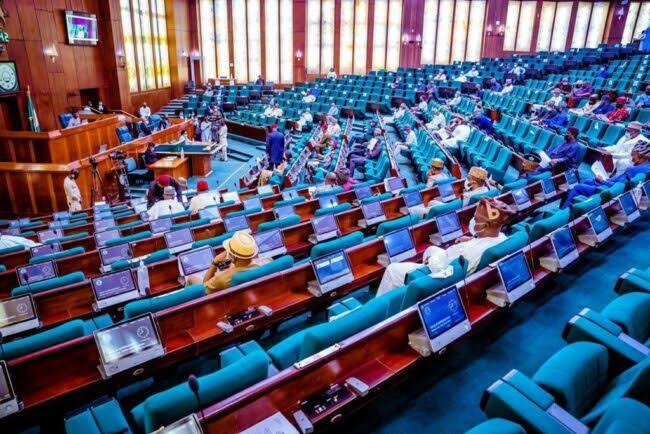The House of Representatives Committee on Constitution Review has announced a pivotal meeting with the Nigerian Governors Forum (NGF) scheduled for Wednesday, July 23, 2025. The gathering aims to present and deliberate on a series of bills currently under consideration for amending the 1999 Constitution, a document that has long served as the bedrock of Nigeria’s democratic system but has faced criticism for its limitations in addressing contemporary challenges.
The 1999 Constitution, enacted during Nigeria’s transition from military rule to democracy, has undergone several amendments over the years, yet calls for comprehensive reforms persist. Issues such as federalism, resource control, state policing, and local government autonomy have dominated public discourse, with stakeholders advocating for changes to enhance governance, equity, and national unity. The upcoming meeting between the House Committee and the NGF signals a collaborative effort to incorporate the perspectives of state governors, who play a critical role in the amendment process, given the constitutional requirement for state-level concurrence.
A Crucial Dialogue for Constitutional Reform
The House Committee on Constitution Review, chaired by the Deputy Speaker, Rt. Hon. Benjamin Kalu, has been proactive in driving the sixth alteration of the 1999 Constitution. Since its inauguration, the committee has embarked on widespread consultations, engaging citizens, civil society organizations, traditional leaders, and professional bodies to ensure the amendment process reflects the aspirations of Nigerians. The decision to meet with the NGF underscores the committee’s recognition of the governors’ influence in shaping policy and their pivotal role in securing the two-thirds approval of state assemblies required for constitutional amendments to take effect.
According to a statement from the committee, the July 23 meeting will focus on presenting a comprehensive set of bills designed to address pressing national issues. While specific details of the bills remain under wraps, sources close to the committee suggest that the proposals cover a wide range of topics, including:
-
Devolution of Powers: Proposals to transfer certain powers from the federal government to the states, aiming to strengthen federalism and promote efficient governance at the subnational level.
-
State Policing: A highly debated issue, with some bills advocating for the establishment of state police to address security challenges more effectively, while ensuring safeguards against abuse.
-
Local Government Autonomy: Measures to grant greater financial and administrative independence to local governments, reducing their dependence on state governors.
-
Resource Control: Reforms to address long-standing grievances over the allocation and management of natural resources, particularly in oil-producing regions.
-
Judicial and Electoral Reforms: Proposals to enhance the independence of the judiciary and improve the credibility of Nigeria’s electoral processes.
The meeting is expected to provide a platform for robust discussions, with governors offering insights based on their experiences managing state-level challenges. The NGF, chaired by Kwara State Governor AbdulRahman AbdulRazaq, represents the collective voice of Nigeria’s 36 state governors and has historically played a significant role in shaping national policy.
Why This Meeting Matters
The collaboration between the House Committee and the NGF is a critical juncture in Nigeria’s constitutional reform journey. The 1999 Constitution, often described as a product of military fiat, has faced criticism for its centralized structure, which many argue stifles development and exacerbates regional tensions. Past amendment efforts have yielded incremental changes, such as the 2010 and 2011 amendments, which addressed electoral and judicial issues. However, the current review process is seen as one of the most ambitious yet, with the potential to redefine Nigeria’s governance architecture.
The involvement of the NGF is particularly significant because state governors wield considerable influence over their respective state assemblies, which must ratify any constitutional amendments. Section 9 of the 1999 Constitution mandates that amendments require the approval of two-thirds of both the National Assembly (24 state assemblies) and a two-thirds majority in both the House of Representatives and the Senate, followed by presidential assent. By engaging the governors early, the committee aims to build consensus and streamline the ratification process.
Moreover, the meeting comes at a time when Nigeria faces multifaceted challenges, including rising insecurity, economic instability, and calls for restructuring. The outcome of the July 23 discussions could set the tone for addressing these issues, potentially reshaping the balance of power between federal and state governments and fostering greater accountability in governance.
Public Expectations and Challenges Ahead
The announcement of the meeting has generated significant interest among Nigerians, with many expressing hope that the amendment process will yield transformative outcomes. On platforms like X, citizens have been vocal about their expectations, with some calling for bold reforms to address systemic inequalities, while others remain skeptical about the political will to implement far-reaching changes. Posts on X highlight ongoing debates about state policing, fiscal federalism, and the need for a constitution that reflects Nigeria’s diverse cultural and regional realities.
However, the amendment process is not without challenges. Previous attempts to amend the constitution have faced hurdles, including disagreements between federal and state actors, competing regional interests, and logistical constraints. The committee will need to navigate these complexities while ensuring that the proposed bills align with the broader aspirations of Nigerians.
To enhance transparency, the committee has pledged to continue its public engagement efforts, including town hall meetings and calls for memoranda from citizens. This inclusive approach aims to ensure that the final bills reflect a broad consensus, increasing the likelihood of successful ratification.
A Step Toward a New Nigeria?
As the July 23 meeting approaches, all eyes will be on the House Committee and the NGF to deliver on their promise of meaningful constitutional reform. The outcome of this collaboration could have far-reaching implications for Nigeria’s democracy, potentially ushering in an era of greater decentralization, accountability, and responsiveness to citizens’ needs.
For Nigerians eager to follow the process, updates are likely to emerge on official government channels and platforms like X, where real-time discussions offer insights into public sentiment and stakeholder reactions. The House Committee has also encouraged citizens to stay engaged and submit their input to ensure that the amended constitution truly reflects the will of the people.
As Nigeria stands at this critical crossroads, the July 23 meeting represents more than a procedural step—it is a chance to redefine the nation’s future. Whether the proposed amendments will meet the expectations of a diverse and dynamic population remains to be seen, but the stage is set for a historic dialogue that could shape Nigeria for generations to come.
Join our Whatsapp channel to stay updated always!


